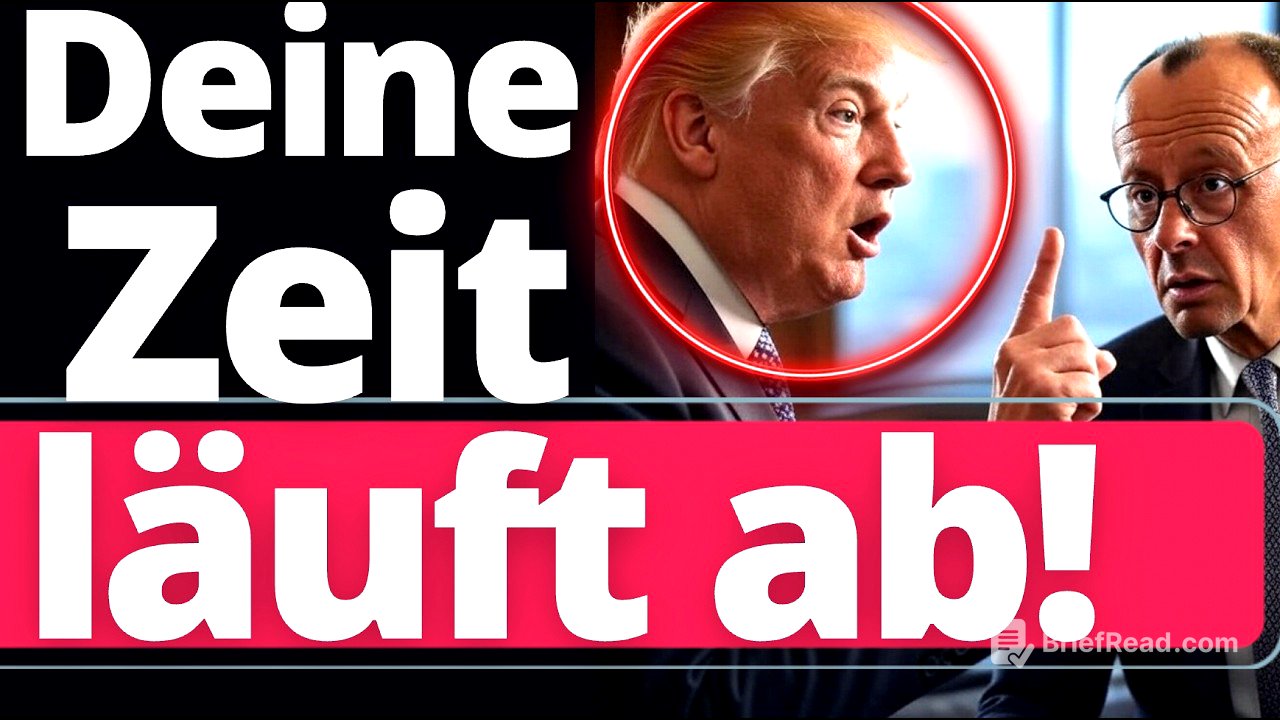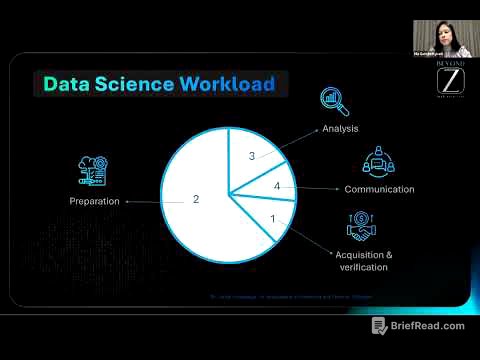TLDR;
This video discusses the potential trade disputes between the EU and the US under a possible second Trump presidency, and the implications for Germany. It highlights Germany's weak economic growth compared to other EU nations like France, and the challenges faced by Friedrich März in negotiating with Trump due to the EU's complex trade agreements and Germany's lack of economic leverage. The video suggests that Germany may have to concede to Trump's demands, which could have negative consequences for the German middle class and energy costs, especially if the EU continues to pursue socialist economic policies.
- Trump is putting pressure on the EU with potential trade disputes.
- Germany's economic growth is lagging behind other EU countries.
- Friedrich März faces challenges in negotiating with Trump due to EU centralism and Germany's weak economic position.
- The EU's insistence on socialist experiments may lead to negative consequences for Germany.
- The US has lower energy costs and is experiencing growth through debt-financed investments in innovation.
Introduction: Trump's Trade Pressure on the EU [0:00]
The video begins by highlighting the urgency of potential trade disputes between the EU and the US, particularly concerning Friedrich März's response to Donald Trump's demands. Trump is reportedly sending letters to 12 countries outlining trade principles on a "take it or leave it" basis, signaling a firm stance in upcoming negotiations. The video suggests that the EU's complex trade agreements and non-tariff trade barriers have created an imbalance, with higher penalties for US companies compared to what the US demands from European companies.
Germany's Economic Struggles and Lack of Leverage [1:53]
Germany's economic growth is lagging behind, even compared to France, which raises concerns given France's state quota. The video draws an analogy to a situation where Germany has no leverage in negotiations with Trump, lacking both "cards" and "chips." Warnings from industries like BASF about potential job losses are increasing, highlighting the consequences of the energy transition. März is aware that he has little influence in the ongoing trade disputes.
März's Call for Quick Solutions and Pressure on Von der Leyen [3:26]
März is advocating for a quick resolution to the tariff dispute, especially for key industries such as chemical, pharmaceutical, mechanical engineering, aluminum, steel, and automotive. He emphasizes the need for a simple and fast solution rather than lengthy and complicated negotiations. März has put pressure on Ursula von der Leyen, who seems detached from national trivialities and Germany's economic growth.
EU's Digital Policies and Potential Consequences [4:21]
The EU is implementing the Digital Services Act (DSA), which is creating challenges for US companies in digitalization and innovation. The video suggests that the EU's focus on digitalization is primarily for surveillance. An article from the Berliner Zeitung notes that Trump prefers simple solutions, while the EU tends to create complex and incomprehensible regulations. The EU's insistence on penalties for companies like Facebook, Meta, and Google may lead to further major cuts unless März can restore some national sovereignty and represent Germany's interests.
EU Centralism and Germany's Limited Influence [5:56]
Trade matters are handled centrally via Brussels, limiting März's influence. He can participate in negotiations and act like a foreign minister, but fundamentally has little say. Germany's economic position is not strong enough to implement its positions effectively. The video suggests that the most sensible approach would be to acknowledge past mistakes due to EU centralism and socialist planned economy, and to negotiate a mutually beneficial deal with the US.
The Potential Catastrophe for Germany [7:03]
The EU's insistence on socialist experiments may lead to a catastrophic outcome for the German middle class and overall energy costs. In contrast, the US has lower energy costs and is experiencing growth through debt-financed investments in innovation and artificial intelligence. The debt taken on in Europe is being used for unproductive purposes, such as tanks, which do not contribute to economic growth.
März's Declining Support and the Need for Results [8:36]
März's support within the Union may decline if he does not start producing results. The electricity tax issue is compared to the gas levy failure, highlighting März's challenges. The pressure to deliver quick results may lead him to concede to Trump's demands.









